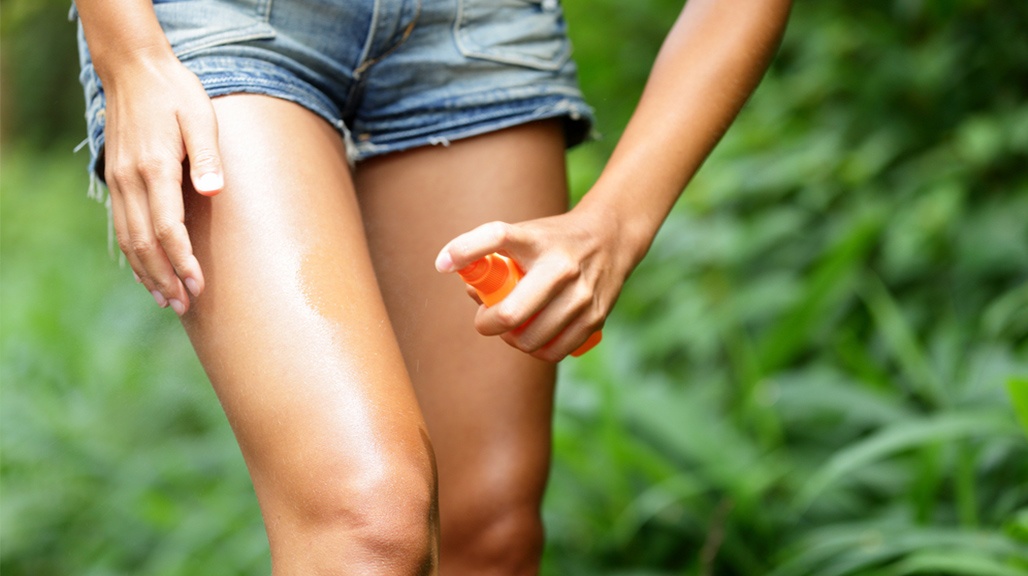Understanding Zika Virus And Ways To Protect Ourselves
 Contributed by
Pauliina Salmenhaara
October 15, 2016
Contributed by
Pauliina Salmenhaara
October 15, 2016

On August 28, 2016, the Ministry of Health confirmed that the locally transmitted Zika virus has already spread in Singapore.
Furthermore, in just one week Zika cases have gone from zero to 258, raising alert level 2 in the whole country.
With its clean and green strict governance in place, Singapore is not the first country we would think of as being affected by the widespread Zika virus. However, the city’s high population density and humid climate make the country vulnerable to this epidemic.
“The Aedes genus mosquitoes thrive in these densely packed urban environments. When you have high populations of people and mosquitoes, it’s a good recipe for both dengue and Zika to spread.”– Eng Eong Ooi, deputy director at Duke-NUS Medical School in Singapore.
What Is Zika Virus
The Zika Virus is a disease caused by infected Aedes genus mosquitoes. These mosquitoes become a vessel of the virus when they feed on a Zika infected person, and then can transfer the virus to other people through bites. The Aedes genus mosquitoes prefer to be close to people. They live in tropical and subtropical areas and usually bite at day, but can also bite at night. It is the same type of mosquito which carries dengue, chikungunya, and yellow fever.
Zika Through The Years
According to the World Health Organization, the Zika virus was first identified in Uganda in 1947 in monkeys, through a network that monitored yellow fever. It was later identified in humans in 1952, in Uganda and the United Republic of Tanzania. With only 14 documented cases of human Zika virus disease in the world during the early years, it was considered “mild” and not something serious. This changed in 2007 when the first large Zika outbreak was recorded in Micronesia, resulting in an estimated 73% of residents being infected. Since then, the Zika Virus has become a serious epidemic, starting from the Pacific Islands (such as French Polynesia, Easter Island, New Caledonia); to the Americas (such as Brazil, Colombia, United States, Venezuela); and now in Asian countries like Singapore, Thailand, Vietnam, Malaysia, Indonesia and the Philippines.
There are many ways that the Zika Virus can be transmitted. It can pass on through sex, during pregnancy, via blood transfusions, and by travelling in affected areas.
Signs And Symtomps
Zika is usually mild with symptoms lasting for 2-7 days. Symptoms include:
- Fever
- Skin rashes
- Conjunctivitis
- Red eyes
- Muscle and joint pain
- Malaise
- Headache
A Zika virus infection can only be detected with the help of laboratory tests on blood or other body fluids such as urine, saliva, or semen. As Zika is not deadly, with non-acute symptoms, many people might not realize they have been infected.
Effects
Although not deadly, health officials have become more worried because of the Zika Virus’ possible connection to birth defects in children born to infected mothers. More than 4,000 cases of microcephaly have been reported in Brazil. Microcephaly is a rare neurological condition in which an infant’s head is significantly smaller than the heads of other children of the same age and sex, resulting in infant defects or death.
Researchers also associate the Zika virus with Guillain-Barré syndrome, a rare disorder in which your body’s immune system attacks your nerves and possibly causes paralysation of your whole body.
While the link of these diseases to the Zika virus is still under investigation and needs further research, health organizations have advised pregnant women to be overly cautious when travelling.
Treatment
There is currently no vaccine available for the Zika virus disease. As Zika cases are only mild, people should get plenty of rest, drink enough water, and treat pain and fever with common medicines. Seek medical help if symptoms worsen.
We at R.A.W Inside Out always believe in the power of prevention. Here are ways to prevent getting infected:
- Prevent mosquito bites at all cost by buying mosquito repellents. For protecting yourself against the Zika virus, health organisations suggest the use of repellents containing DEET, IR3535 or icaridin, as the aedes genus type of mosquitoes prefers to feed on people and are very persistent.
The chemicals DEET, IR3535, and icaradin are strong chemicals that might be harmful for humans if not used properly. Necessary precautions are advised; look for repellents with no more than 30% DEET. Keep off of face and hands, and rather than using a higher concentration, reapply more often and as needed. Wash repellents off your skin once you go inside, and keep away from children.
The use of natural repellents is also possible, but bear in mind that most of these repellents can only last an hour. Reapplying is a must. We recommend natural repellents made of essential oils and herbs such as Zoe Organics, Badger, or Bubble & Bee Organic brands.
- Use physical barriers such as window screens
- Sleep under mosquito nets
- Maintain cleanliness within your neighborhood. Cover and empty potential mosquito breeding sites such as buckets, drums, pots, gutters, used tyres, or vases with water.
- Be a wise traveller by avoiding affected areas
- Use condoms and practice safe sex
Let’s protect ourselves and our families by following the tips mentioned above.
Written by Germina Paola, for R.A.W. Inside Out.
Edited by Michelle Sarthou
Images: Shutterstock
References:
http://www.cdc.gov/
http://www.who.int/en/
http://www.webmd.com/
http://edition.cnn.com/2016/09/05/health/zika-asia-threat/
Did you enjoy this post? Please comment, like and share!











Sorry, the comment form is closed at this time.